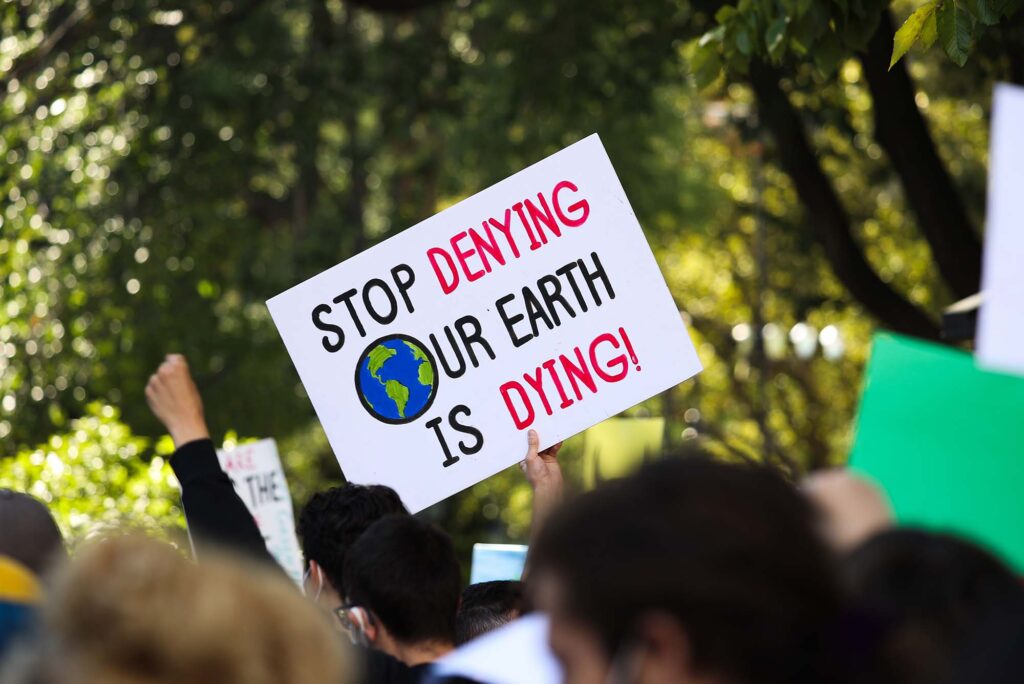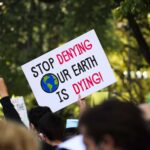For the first time in the history of UN climate conferences, countries have formally recognised climate disinformation as a threat to global action. Even as COP30 in Belém delivered a landmark commitment to strengthen information integrity, the summit failed to secure a clear promise to phase out the fossil fuels driving the crisis.
This shift was reinforced by a new international declaration aimed specifically at combating climate disinformation and safeguarding the integrity of public information.
Thirteen countries signed the “Declaration on Information Integrity on Climate Change,” launched at COP30 by the Global Initiative for Information Integrity on Climate Change. The pact seeks to deepen global cooperation against false or misleading narratives that weaken public trust and delay climate action.
Under the agreement, governments, civil society organisations and private-sector actors commit to promoting transparency, protecting journalists and researchers working on environmental issues, and ensuring that climate information remains accurate, evidence-based and accessible.
Signatory countries include Brazil, Canada, Chile, Denmark, Finland, France, Germany, Spain, Sweden, Uruguay, Belgium and two additional members.
President Luiz Inácio Lula da Silva of Brazil — host of COP30 — described climate change as “a tragedy of the present,” warning that the world now lives “in an era where obscurantists reject scientific evidence and attack institutions.”
He urged global leaders to “deliver yet another defeat to denialism.”
UN Secretary-General António Guterres echoed the concern, calling for stronger action against misinformation, online harassment and greenwashing.
“Scientists and researchers should never fear telling the truth,” he said.
The final COP30 outcome document — known as the Mutirão — includes a direct pledge to counter false narratives that undermine science-based climate policy.
Delegates warned that the rapid spread of climate denial, conspiracy theories and politically motivated misinformation now poses a serious threat to national climate plans, social stability and global cooperation.
COP30 host President Lula da Silva had opened the summit declaring it the “COP of truth,” and by the close of negotiations, countries had taken their first collective step toward treating climate disinformation as a global governance challenge, even as deeper fault lines, especially on fossil fuel phase-out, remained unresolved.
Despite support from more than 80 countries, including several African states, a roadmap to wind down fossil fuels was stripped from the final text during the tense final hours of negotiations.
Oil-producing nations argued that they must retain the right to exploit their reserves, while the absence of the United States, which did not send a delegation after President Trump’s withdrawal from the Paris Agreement, left diplomatic gaps in key discussions.
A Deal to Expand Climate Finance — Without Curbing Fossil Fuels
The final package does deliver major wins on finance and implementation:
- Mobilising $1.3 trillion a year for climate action by 2035
- Doubling adaptation finance by 2025 and tripling it by 2035
- Making the loss and damage fund operational
- Launching a Global Implementation Accelerator
- Establishing the Belém Mission to 1.5°C
But the absence of a fossil fuel phase-out leaves a glaring hole. Climate scientist Carlos Nobre warned that global fossil fuel use must fall to zero by 2040–2045 to avert catastrophic warming of up to 2.5°C, a trajectory that could collapse the Amazon rainforest, wipe out coral reefs and accelerate ice sheet melt.
Roadmaps for Forests and a Just Energy Transition
Acknowledging the frustration of many African nations, youth groups and climate-vulnerable states, COP30 President André Corrêa do Lago announced two new roadmaps outside the formal COP decision:
- One to halt and reverse deforestation, linking the Amazon and Congo Basin
- One to guide a just and equitable energy transition
These will shape discussions ahead of COP31, though the lack of legal force leaves questions about enforcement.
Disruptions, Protests and a Divided Summit
Belém’s COP was defined by drama — flooded venues, a fire outbreak, security breaches and Indigenous protests demanding stronger forest protections. Negotiators worked through the night, balancing competing interests in what many delegates called one of the most polarised COPs since the process began.
Yet multilateralism held. UN Secretary-General António Guterres praised the outcome for “keeping the climate ship afloat” in turbulent geopolitical waters.
Billions Mobilised Beyond the Negotiating Rooms
The Brazilian presidency highlighted major voluntary pledges:
- $5.5 billion for the Tropical Forests Forever Fund
- $300 million for the Belém Health Action Plan
- $66 billion annually pledged by public utilities for renewable energy
- 850,000 tonnes of CO₂ cuts reported by cities, regions and companies
Climate justice was also central, with countries agreeing to design a global just transition mechanism to support communities on the frontlines of climate impacts.
The Work Ahead
Despite unprecedented momentum on finance and disinformation, the failure to secure a fossil fuel commitment has left many nations, particularly vulnerable African states, deeply disappointed.
UN climate chief Simon Stiell warned that time is running out:
“Humanity remains in the fight for a livable planet, but we must go further and faster.”
For Africa, where climate misinformation already undermines adaptation, governance and public trust, the new global commitment to information integrity marks a significant step forward. Whether it will be enough depends on what countries do next.










